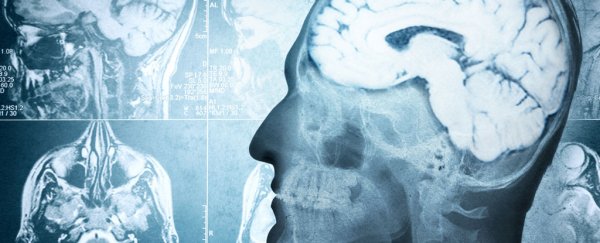At one point or another, we've all experienced something that we'd rather forget, so it's a good thing our brains aren't designed to hold onto every single memory forever. If they did, we might never be able to store new, more important information, such as the names of new people you meet or where you parked your car.
But at the level of the neuron, what regulates our ability to store and recall information? New research suggests one of the processes involved is 'anti-memories' – connections between neurons that generate the exact opposite pattern of electrical activity to that of the original memory.
The 'anti-memories' hypothesis comes back to the idea that healthy brain function results from the interaction between two types of brain cells: excitatory and inhibitory neurons. Like the names suggest, the excitatory neurons excite electrical activity in our brains, while inhibitory neurons suppress it.
Scientists think that without this balancing of excitatory/inhibitory (E/I) functions, overly excited neurons could give rise to conditions like epilepsy, schizophrenia, and autism.
In a new study, researchers at the University of Oxford and University College London in the UK have been looking at how the same function affects our ability to recall information.
When we learn something, connections are made between excitatory neurons. That's good, because it enables us to make new memories, but it also puts our E/I system out of balance. To restore that balance, inhibitory connections – in the form of anti-memories that negate the electrical patterns that make up memories – come into play. These anti-memories don't actually destroy our memories, but they do silence them.
Scientists had already studied anti-memories in animals and theoretical models, but until now, nobody knew much about how they might function in people.
To examine this, the researchers used functional magnetic resonance imaging (fMRI) and other techniques to take a detailed look at the brain activity of volunteers. The participants were introduced to pairs of shapes, which helped them to form associative memories of the pairs.
"Over 24 hours, the shape associations in the brain became silent. That could have been because the brain was rebalanced or it could simply be that the associations were forgotten," said neuroscientist Helen Barron from the University of Oxford.
"So the following day, some of the volunteers undertook additional tests to confirm that the silencing was a consequence of rebalancing. If the memories were present but silenced by inhibitory replicas, we thought that it should be possible to re-express the memories by suppressing inhibitory activity."
Using transcranial direct current stimulation (tDCS) to apply a low current of electricity to the participants' brains, the team was able to suppress the concentration of certain neurochemicals in the brain, including GABA, which is linked to inhibition. By doing this, they reduced the activity of the anti-memory inhibitory neurons, which meant the memories of the shape associations were re-expressed and came back to the volunteers.
"'We have shown that reducing cortical inhibition can unmask silent memories," said Barron. "This result is consistent with a balancing mechanism – the increase in excitation seen in learning and memory formation, when excitatory connections are strengthened, appears to be balanced out by a strengthening of inhibitory connections. From this we can infer that memories are stored in balanced E/I cortical ensembles."
It's worth bearing in mind that this was a small study with only low numbers of participants, so it's early days in terms of our understanding of exactly how these inhibitory connections function. But the researchers say that evidence of anti-memories in humans and the ability to manipulate them could be a big step forward in terms of our understanding and treatment of neuropsychiatric conditions.
"The paradigm has the potential to be translated directly into patient populations, including those suffering from schizophrenia and autism," said Barron. "We hope that this research can now be taken forward in collaboration with psychiatrists and patient populations so that we can develop and apply this new understanding to the diagnosis and treatment of mental disorders."
The study has been published in the journal Neuron.
Update: A previous version of this story suggested anti-memories help us to forget certain information, but the research actually suggests that their role is rather to help stabilise memories in order to allow long-term storage. As Helen Barron told ScienceAlert, anti-memories "appear to allow multiple memories to be stored in the brain, without interference between these memories". We've updated the article to clarify this.

